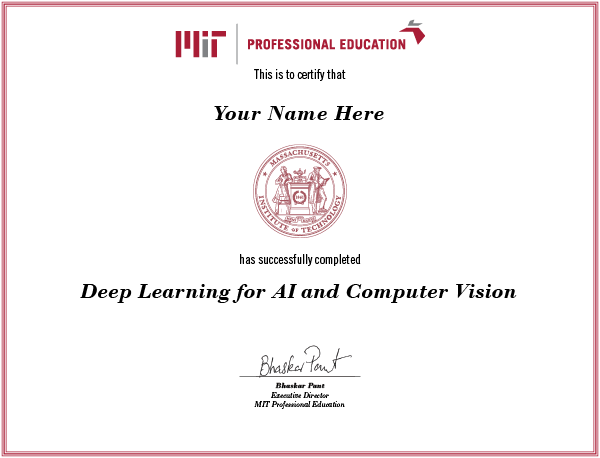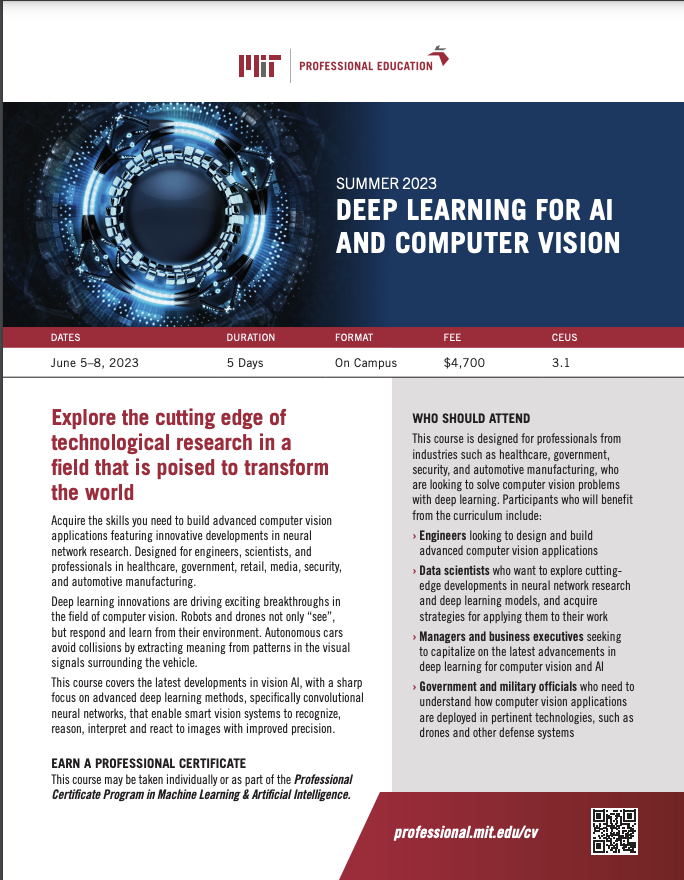Acquire the skills you need to build advanced computer vision applications featuring innovative developments in neural network research. Designed for engineers, scientists, and professionals in healthcare, government, retail, media, security, and automotive manufacturing, this immersive course explores the cutting edge of technological research in a field that is poised to transform the world—and offers the strategies you need to capitalize on the latest advancements.
This course may be taken individually or as part of the Professional Certificate Program in Machine Learning & Artificial Intelligence.
The type of content you will learn in this course, whether it's a foundational understanding of the subject, the hottest trends and developments in the field, or suggested practical applications for industry.
How the course is taught, from traditional classroom lectures and riveting discussions to group projects to engaging and interactive simulations and exercises with your peers.
What level of expertise and familiarity the material in this course assumes you have. The greater the amount of introductory material taught in the course, the less you will need to be familiar with when you attend.




